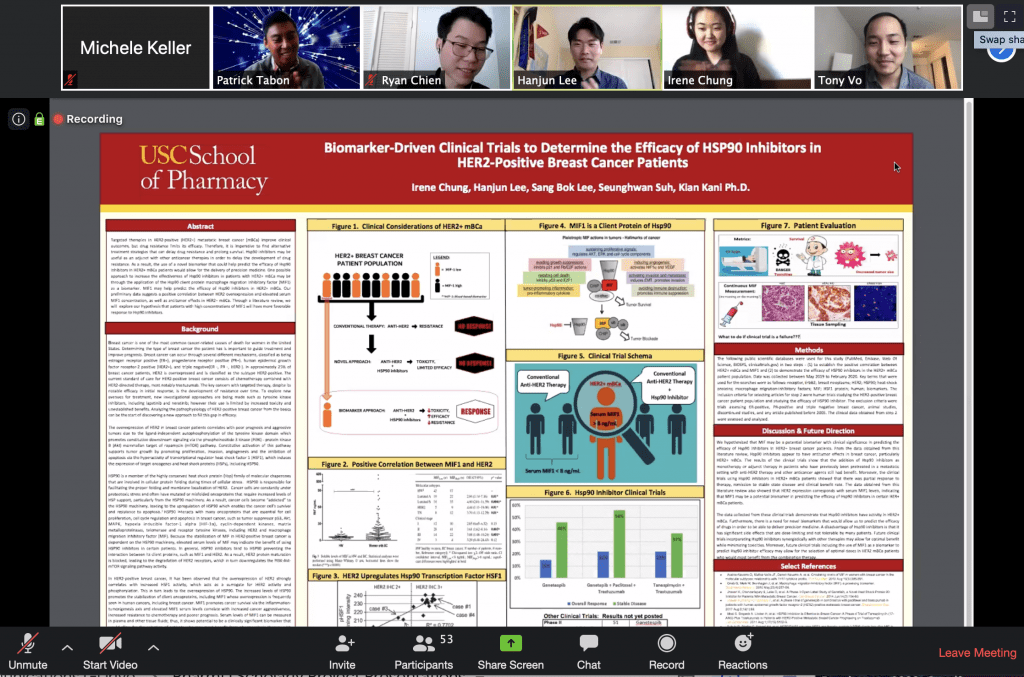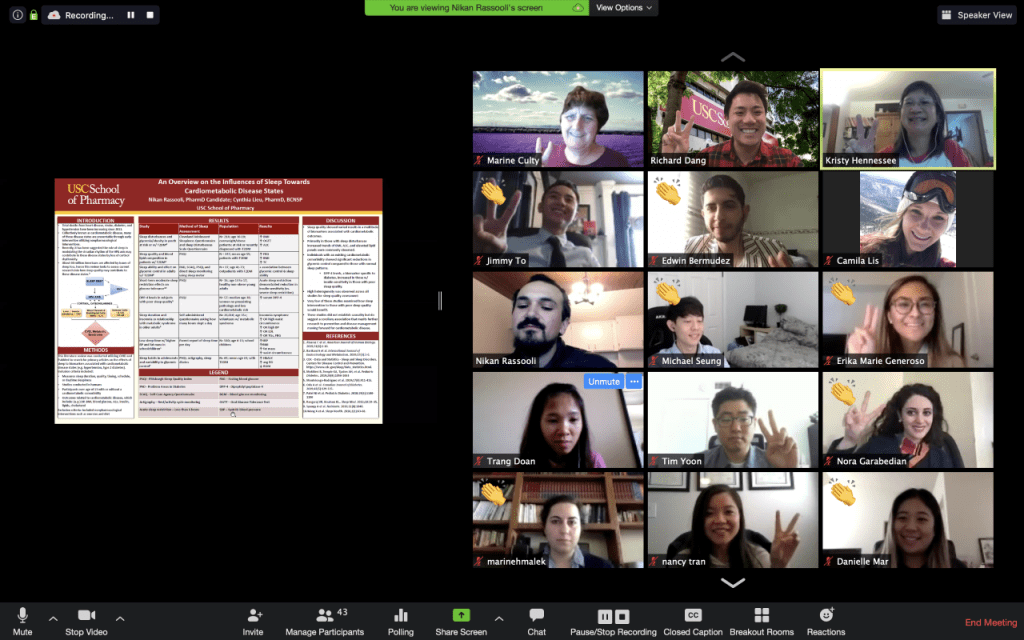The USC School of Pharmacy’s third annual Scholarly Project Symposium on March 27 gave third-year pharmacy students the opportunity to present original research projects to an audience of alumni, faculty, staff and classmates.
With the school’s temporary transition to online education amid the COVID-19 pandemic, students adapted quickly and presented their findings virtually to a panel of judges that included faculty members as well as fourth-year pharmacy students who showcased their research projects last year.
Recognizing the unprecedented times, faculty judge Patrick Tabon, assistant professor of clinical pharmacy, shared words of encouragement at the start of the daylong symposium: “You know my favorite saying: ‘Dance in the rain,’” he said. “We’ll get through this together. You guys are, as a group, very strong.”
Members of the Class of 2021 collectively dedicated thousands of hours to produce 81 original scholarly projects across a range of categories, including academia, ambulatory care pharmacy, health economics, transitions of care, pain management, community pharmacy practice and public health.
Research topics included how sleep influences cardiometabolic disease states, diabetes management among the Pacific Islander population, medication waste and returns on investment in workplace wellness programs. (View a full list of projects here.)

Rory Kim, assistant professor of clinical pharmacy and the symposium’s faculty organizer, noted that it was important for the event to incorporate opportunities for professional growth.
“Students learn to apply the process of scientific inquiry from the generation of a research question through data collection, analysis and presentation of results,” Kim said. “This not only prepares them for future research endeavors in residency, fellowship and practice, but it also prepares them to be problem solvers in their future careers.”
Student participants said they found the research experiences challenging but rewarding.
Michael Kessler, who analyzed over-the-counter pain relief medication use in elite athletes, said seeing the entire research study through from start to finish — including obtaining Institutional Review Board (IRB) approval — was a confidence booster. “This was something that I learned about through lectures, but it was a completely different experience when doing it firsthand,” he said.
Chara Aueyong, whose team project focused on medication waste, said she was heartened to see a diverse community of students challenging each other to become well-rounded healthcare professionals. Classmate Krystal McCarty echoed this sentiment. “The span of topics being presented really goes to show how versatile the knowledge of a pharmacist is,” said McCarty, whose scholarly project focused on the use of oxytocin troches in acute and chronic pain management.
2020 Awards
Dean’s Award for Excellence in Scholarship
• First place: Noam Morningstar-Kywi, “Ligand-Specific Pharmacodynamic Effects of Nonsynonymous Mutations”
• Second place: Ivy Bien, “Immune Checkpoint Inhibitor Use Associated With an Increase in Number and Severity of Adverse Reactions”
Alumni Award for Excellence in Scholarship
• First place: Dalia Ameripour, Megan Matthews, “Learn Together, Work Together: A Qualitative Analysis of Interprofessional Learning During Experiential PharmD Education”


